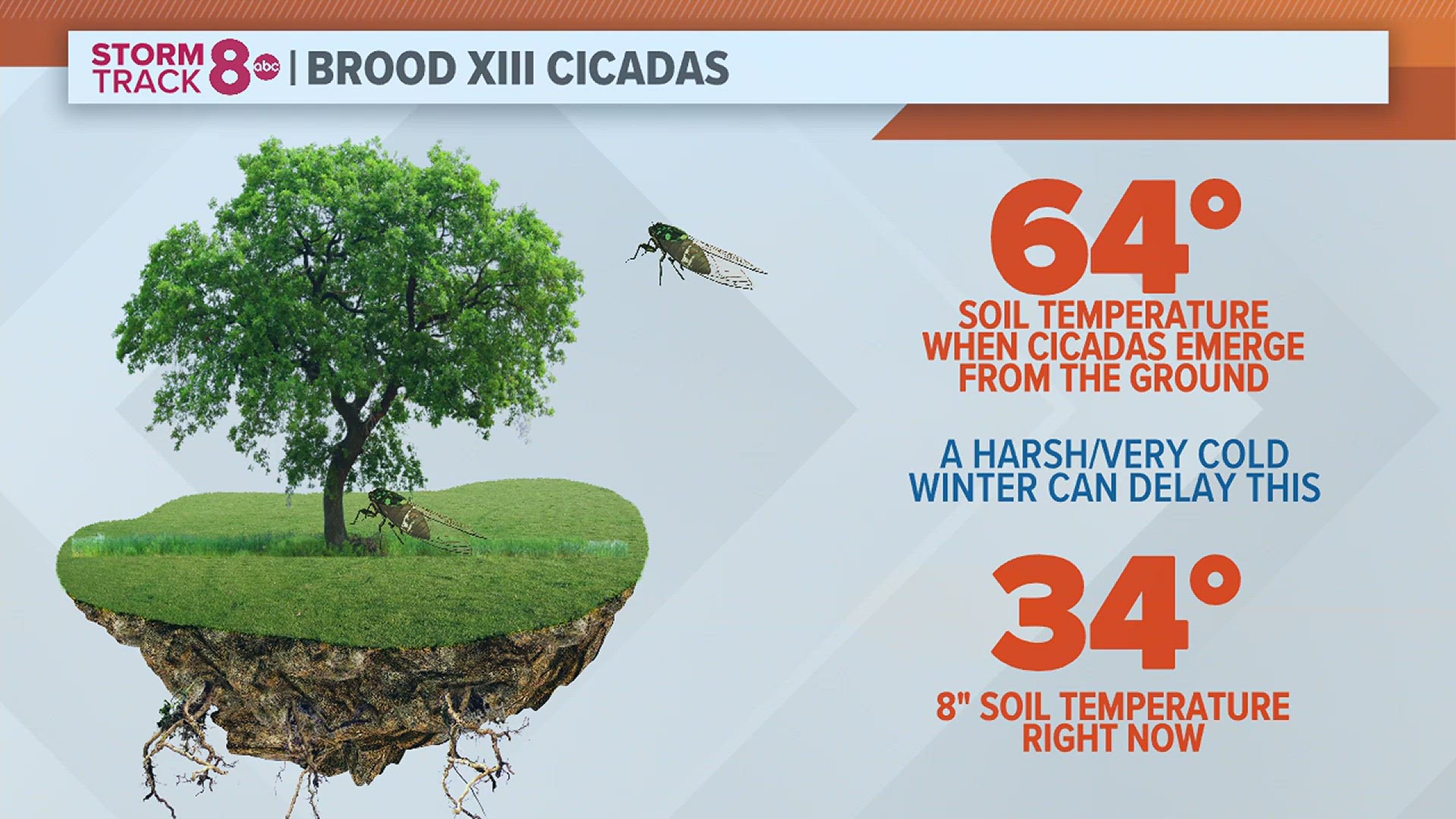ILLINOIS, USA — Countless amounts of stocky, bug-eyed insects are set to crawl out of the ground throughout Missouri and Illinois this spring.
News outlets both nationally and locally are reporting that the 2024 cicada brood reemergence is set to be historic across the country. Many are saying that "billions" or even "trillions" of bugs are set to make an appearance, with some even stretching to call it a "cicadapocalypse."
But, are these claims being sensationalized? We spoke to experts in both Illinois and Missouri to VERIFY facts from fiction.
The question
Is a "cicadapocalypse" coming for Illinois and Missouri this spring?
Our sources
- Robbie Doerhoff, State Entomologist of Missouri at the Missouri Department of Conservation
- Katie Dana, Illinois Natural History Survey affiliate at the University of Illinois Urbana-Champaign and research biologist with the U.S. Army Construction Engineering Research Laboratory
The answer
No, a "cicadapocalypse" isn't on its way. The historic synchronized reemergence of two large broods won't be overlapping in the Midwest.
What we found
Unlike annual cicadas, which emerge in late July, periodical cicada broods are scheduled to reemerge this May across different areas in Midwest and Eastern states. They'll be buzzing for around six weeks before laying their eggs in slits inside of small tree branches.
What makes this year's periodical cicada brood reemergence "historic" is that two specific broods will reemerge at the same time for the first time since 1803, around 221 years ago.
Brood XIX, which reemerges every 13 years, will be in Southern Illinois and throughout most of Missouri.
Brood XIII, which reemerges every 17 years, will be in Northern Illinois, Eastern Iowa and Southern Wisconsin.
It's a once-in-a-lifetime event, but cities won't be feeling any different than when just a 13-year brood or 17-year brood reemerges.
"They do come out at the same time, but their geographic range doesn't overlap, so we won't have double the cicadas in one area," Doerhoff said. "What's really cool, and it happens very rarely, is when a 13-year and a 17-year group emerges in the same place and the same time, because it is then double the cicadas. But, that's not what's happening this year."
In 1998, Missouri residents did see double the cicadas when a 17-year brood known as Brood IV emerged in western Missouri and the 13-year brood of Brood XIX emerged at the same time across the rest of the state. Numerous counties had overlap of the two broods, according to the Missouri Department of Conservation.
Cicada Broods Map:
Even during a non-historic periodical cicada brood reemergence, there are still a lot of cicadas. It's possible that around 100 cicadas can emerge out of a single square yard of land. Rural areas are more at risk of seeing large numbers due to increased development in urban areas over the last 20 years.
"You don't see this with any other insect or organism," Dana said. "With the sheer numbers of cicadas that are emerging, it's going to be much, much louder."
The bugs, however, are more of an ecological benefit than a nuisance. Scientists report cicadas to be harmless to humans and act as a valuable food source for other animals. Birds, especially, need all the help they can get.
"This is actually fertilizing a lot of the plants," Dana said. "As cicadas break down, it actually increases the fungal and bacterial communities, and you do see increased plant growth in future years. So, just shove them in your compost pile!"
The only thing potential harm cicadas pose is to newly planted and small trees. Both Dana and Doerhoff recommended not to plant any new trees until this fall, as cicada activity could overwhelm and kill them.
We can VERIFY: No, multiple periodical cicada broods won't be emerging in the same place in 2024. And, no, a "cicadapocalypse" isn't on its way.
VERIFY
Have a question you want us to VERIFY? Email hbassler@ksdk.com or verify@ksdk.com with your claim.
Craving more VERIFY? See every St. Louis-area claim we've looked into here.

